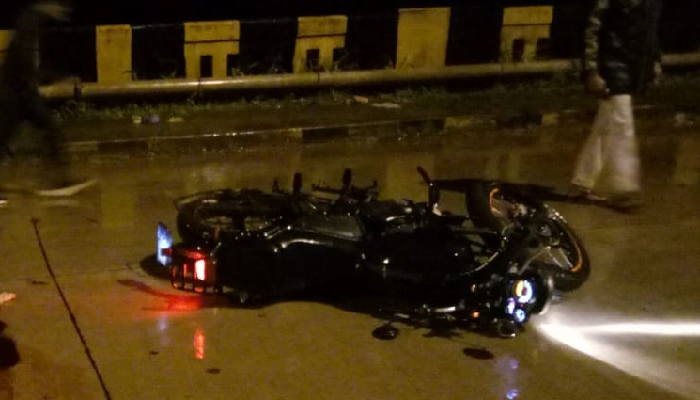Amidst uproar over encroachments of the Wakf properties across India, a huge building has illegally come up on a Wakf land worth several crores of rupees in the heart of the city of Mangaluru in coastal Karnataka. Shockingly, the local administration too has helped a politician’s family to construct the illegal building on the land belonging to the historic Kutchi Memon Masjid in the city.
In fact, the illegal construction work on the Wakf land started around three years ago and now a six-story commercial-cum-residential complex has almost reached its completion after illegally crossing several legal hurdles. Reliable sources said that a leader of Bhartiya Janata Party had managed to mislead the officials of Mangaluru Urban Development Authority (MUDA) and Mangaluru City Corporation (MCC) and obtain licence for the constriction with the help of an illegal ‘permission letter’ from a staff of the mosque.
Occupancy tenants
The 2.5 acres land belonging to the mosque and located at Golikatta Bazar in Bundar area of Mangaluru city had been declared as Wakf property in 1968 through a gazette notification. For the past few years, one Keshava Mijar and his family had been living in 69 cents of land of the same 2.5 acres as occupancy tenants (moola geni basis). Around three years ago, Keshava Mijar’s five children including Ravishankar Mijar, vice-president of Dakshina Kannada district unit of BJP, jointly started constructing a complex after demolition the small buildings on the land.
Completely illegal
Any development work or construction of building on a Wakf land without obtaining a no objection certificate (NOC) directly from the Wakf board will be considered illegal. However, a staff of the mosque, apparently violating his jurisdiction, had reportedly given a written permission using the official letterhead of the mosque to the tenants (Mijar siblings) to construct the complex. The tenants had reportedly paid him Rs 12.5 lakh for this favour.
Even though the permission letter given by the staff of the mosque doesn’t authorise the tenants to construct the building, they went ahead with their multi-crore project. In December 2013, the MUDA provided single site approval to the tenants in violation of the rules or without verifying the documents of the land. In November 2014, the tenants received licence for the construction work from the MCC too.
MCC serves notices
Even thought the illegal construction process started three years ago the state Wakf board recently woke up following a complaint and directed the local administration to stop the illegal construction work. After realising its blunder, the MCC served notices to Ravishankar Mijar and his siblings.
Rs 100 rent for 69 cents land!
However, the BJP leader and his siblings have claimed that the land legally belongs to them. “We, the five siblings, have obtained single site approval from the MUDA. Hence, we have all the rights to construct the building in this 69 cents land. Besides, we are still paying Rs 100 rent every month to the mosque without fail. There is no meaning in arguing that this is Wakf land,” says Ravishankar Mijar.
Legal action awaited
According to MCC Commissioner Mohammed Nazir, the civic body had granted licence for the construction of the complex based on the single site approval issued by the MUDA in 2013 to Ravishankar Mijar and siblings. “However, now we have received information that the property belongs to the Wakf. Hence we will seek the opinion from the legal advisors before taking further action,” he said.
Dakshina Kannada Deputy Commissioner Sasikanth Senthil said that he had already directed the assistant commissioner to look into the issue. “If there are sufficient documents to prove that it’s a Wakf land then the building will be considered illegal and further action will be taken,” he said.
Dakshina Kannada Wakf Advisory Committee chief Kanachur Monu holds MCC and MUDA officials responsible for illegal construction. “A tenant cannot become the owner of the Wakf land just by bribing some people. Even if he creates some documents, they are considered illegal documents. The tenants have illegally constructed a building on land worth Rs 30 crore. It is the responsibility of the authorities concerned to clear the encroachment at the earliest and reclaim the Wakf land,” he said.








Comments
Once Mr Anwar Manipadi submiting wakf property list in a TV Debate howcome he missed this property
May be he was with Pakistani wakf delegates at that time, these days our leadrs are good in attaending birthdays and shaadi and meeting Paki delegates and to be honest we dont have to Bribe people get letter to show honesty and Naionalist.
Who is mijar BTW? Check how he earned so much of money...
Waqf board is sleeping ....
Name the mosque staff
Lets name and shame him
he has eaten the money of the yatheem
This might be the case of encroachment of BJP land by mosque. I know mijar family and they are very honest and nationalist people. They don’t want the property of Pakistani supporters. It was BJP which exposed the encroachment of Wakf property by Congress minister. But Sidramullah’s Khan grace govt is fooling muzzis.
This is not just the case of Mangalore. Everywhere in India we can see same situation. Unfortunately this scam is growing across the country.
Congress government will not take action because it knows that many of Congress bigwigs are doing the same. Paying Rs 10 monthly rent to the mosques and running giant commercial complexes and earning crores.
Add new comment